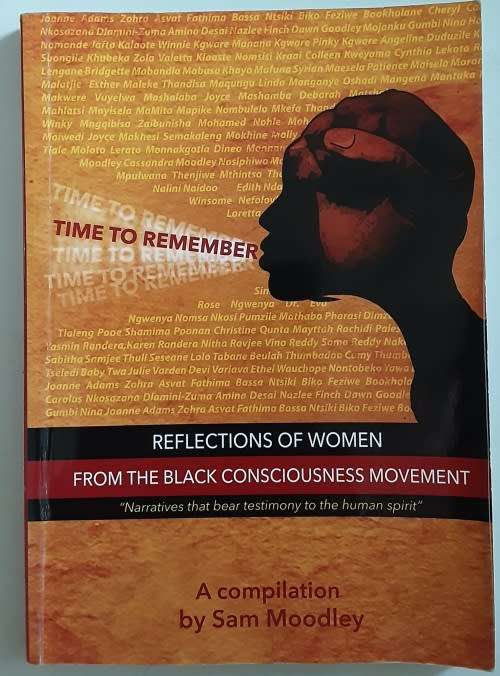
Time To Remember, Reflections of Women from the Black Consciousness Movement by Sam Moodley
Check my rate
| Main centres: | 1-3 business days |
| Regional areas: | 3-4 business days |
| Remote areas: | 3-5 business days |

| Main centres: | 1-3 business days |
| Regional areas: | 3-4 business days |
| Remote areas: | 3-5 business days |
The BCM legacy needs to be acknowledged and embraced so we heal ourselves from inferiority and superior complexes that continue to bedevil our social relationship, writes 1960s black consciousness movement activist, Mamphele Ramphele in a recently published seminal publication beaming the voices of black women involved in South Africas significant and challenging black consciousness movement in the 1960s and 1970s.
It was long overdue. It had to be forthcoming because we had to know, remember and never forget the involvement of young black women in the anti-apartheid struggle propelled by the black conscious movement.
And now the written book has been published. Titled Time to Remember: Reflections Of women from the Black Consciousness Movement, and about Narratives that bear testimony to the human spirit, several black women give their personal accounts of what it meant in their young lives to be black conscious, active in black communities and against the horrendous apartheid regime and its horrific apartheid system.
The narratives, personal stories and accounts are pivotal to our understanding and remembrance of a very relevant and challenging resistance era against apartheid, which is not about the dominant liberation movement, the African National Congress. Its also incredibly authentic and fulfilling in portraying black women in the black conscious movement, without the pivotal focus being Steve Biko, who we all know stands out as the leader of South Africas black conscious era, movement and resistance.
Reading the narratives, one is enthralled by the brave, strong, fearless, young women who participated in activities condemning the apartheid system, who had to confront their frightened parents afraid of their political/resistance involvement and who faced the violence of apartheids security apparatus.
Throughout most of the narratives, we connect the dots and see them in black consciousness movement structures that not only worked tirelessly and fearlessly but hungered for a just society to live in.
Featured in the book are the narratives of Oshadi Mangena, Sibongile Mhabela, Shahida Issel, Ulli Unjinee Poonan, Juby Mayet, Nobandile Biko, Thembi Ramokgopa, Kogila Cooper, Pomla Gwen Mokoape, Nosipho Matshoba, Mmagauta Molefe, Sam Moodley, Ilva Mackay Langa, Latha Ravjee, Refilwe Moloto, Perez Sisters, Zola Ayanda Kuzwayo, Shamim Meer, Nozizwe Madlala-Routledge, Ntombfikile Mazibuko, Sisana Duma Machi, Mamphela Ramphele, Daphne Koza, Hester Joseph Rowayda Halim, Arun Naicker, Zeni Thumbadoo who share their stories, holding nothing back, including the confrontations with their parents who feared for their childrens lives when they challenged the brutal apartheid regime.